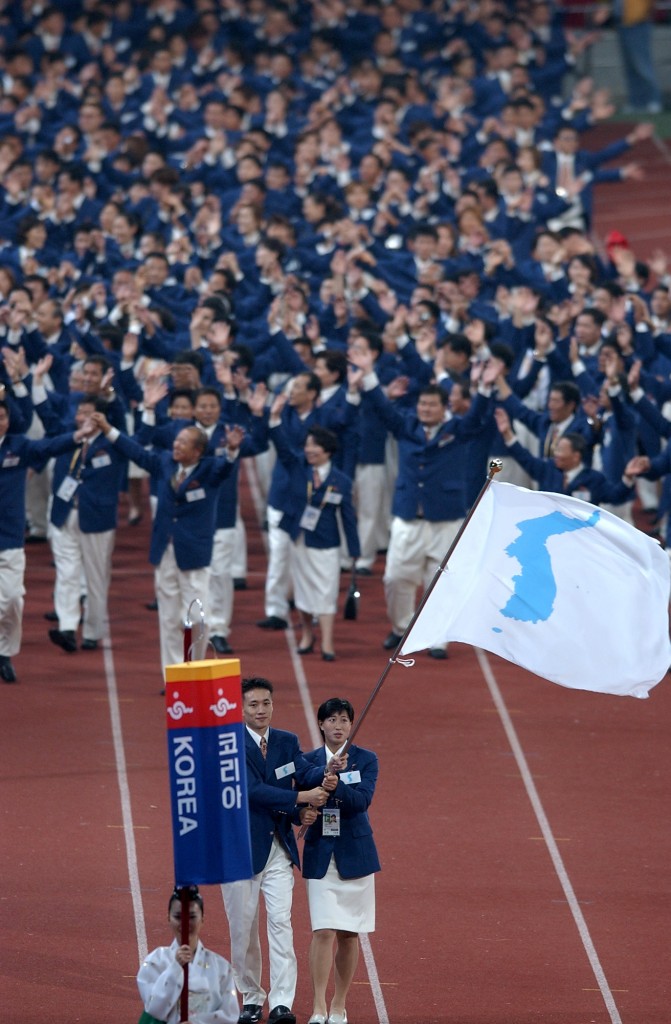- California Assembly OKs highest minimum wage in nation
- S. Korea unveils first graphic cigarette warnings
- US joins with South Korea, Japan in bid to deter North Korea
- LPGA golfer Chun In-gee finally back in action
- S. Korea won’t be top seed in final World Cup qualification round
- US men’s soccer misses 2nd straight Olympics
- US back on track in qualifying with 4-0 win over Guatemala
- High-intensity workout injuries spawn cottage industry
- CDC expands range of Zika mosquitoes into parts of Northeast
- Who knew? ‘The Walking Dead’ is helping families connect
N. Korea to participate in Asian Games in S. Korea

Koreas have entered international competition arena together before, as shown here in the opening ceremony of the Busan Asian Games in 2002. South Korean handball player Hwangbo Sung-il, left, and North Korean female soccer player Li Jung-hee are holding up the ‘One Korea’ flag together. (Yonhap)
(AP) — North Korea says it will enter the Asian Games hosted by South Korea in September, a glimmer of possible rapprochement in what has otherwise been rising animosity between the rivals in recent weeks.
The North’s Olympic committee told the Asian Olympic Committee it will soon make the necessary applications, Pyongyang’s official Korean Central News Agency said on Friday.
The announcement came a day after the Koreas traded artillery fire in disputed Yellow Sea waters. The artillery shells landed in the water, and South Korea said the North’s firing was likely a warning, not an attempted attack.
In January, North Korea said it would take part in men’s and women’s football but hadn’t made clear if it would participate in other events in the games in Incheon, west of Seoul, from Sept. 19-Oct. 4.
Last month, South Korean organizers said they asked the International Olympic Committee to urge North Korea to enter more athletes.
North Korea boycotted the 1986 Asian Games and the 1988 Summer Olympics, both held in Seoul, but the country attended the 2002 Asian Games in the southeastern South Korean city of Busan.
During past periods of warming ties, athletes from the two Koreas marched together at the 2000 Olympics opening ceremony under a “Unified Korea” flag, and did it again at the 2004 Athens Olympics, the 2002 Busan Asian Games and the 2006 Doha Asian Games.
The Korean Peninsula officially remains at war because the 1950-53 Korean War ended with an armistice, not a peace treaty.
















